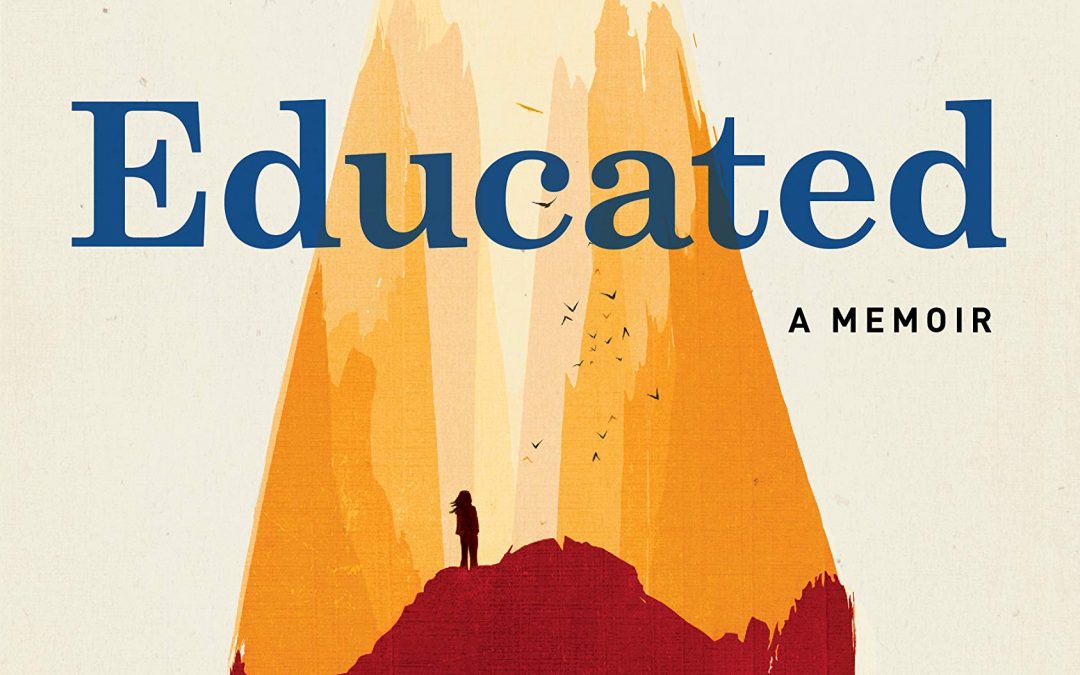By Joel Cox
Educated is an autobiography by Tara Westover. Currently at age 29, she has experienced an incredible range of fear, pain and success. Her family lives in a Mormon community in the countryside of Idaho. Her book is less a commentary on Mormonism than it is an exploration of her own childhood. Tara’s family has a deeply ingrained identity of being “self-made” and not trusting anyone outside of their blood relations. Unfortunately, she was often emotionally and physically in danger, whether from working at a metal scrap yard or managing her father’s volatile emotions. Growing up as the daughter of a bipolar, anxious father, she learned the value of appeasement as a method of protecting herself form his mood swings.
Through purchasing her own textbooks and reading them during her time, she makes her way to Brigham Young University and then to Oxford for both her Masters and Doctorate. Throughout her formal education, she tries to maintain ties with her family. As she learns more about the world outside of rural Idaho, she is forced to decide if she will accept the paradigm of her family or the world academia. For her, it is more than an ideological framework. This decision is her identity. By the end of the book, her family does not accept her decision to remain in academia and eventually disowns her.
This book, Tara’s life, is a deep exploration of belonging. She honestly shows the almost impossible tension between seeking belonging with her family and accepting the reality of the truths of the world outside. She is often tempted to retreat from the world of academia back to the security of her family’s approval. Even with what she’s learned, she often wants to ignore it all just to belong with her family again. Tara strikes a beautiful balance between explaining the extent of trauma that she experienced, often due to the decisions of her family, and maintaining an attitude of hope. She acknowledges the role that her family has played in shaping her.
Working with La Vida can often give me an idealized version of living “off the grid”. I’ve often thought that people grow to resemble the beauty that they see. I assumed that if someone grew up in the shadow of a mountain, that they would grow in deep appreciation for natural beauty, contemplation and peace. Tara’s story challenged me to see the depth of brokenness and harm that can come from isolation, even in a place as beautiful as the mountains of Idaho. Even in nature, seclusion can create space for conspiracy and fear. The brokenness of humanity reaches everywhere, even into beautiful creation. But, like Tara, we must maintain a balance between acknowledging the evil in the world, while seeing the possibility of redemption and growth that can come from even the worst circumstances.

